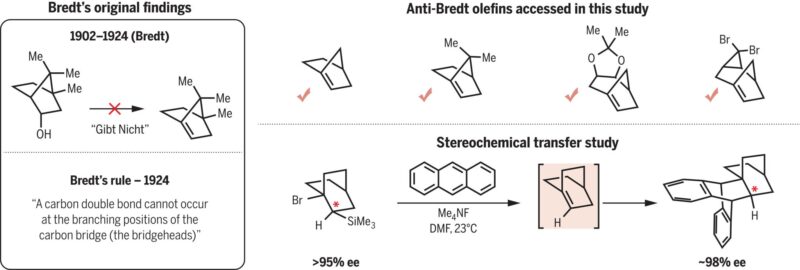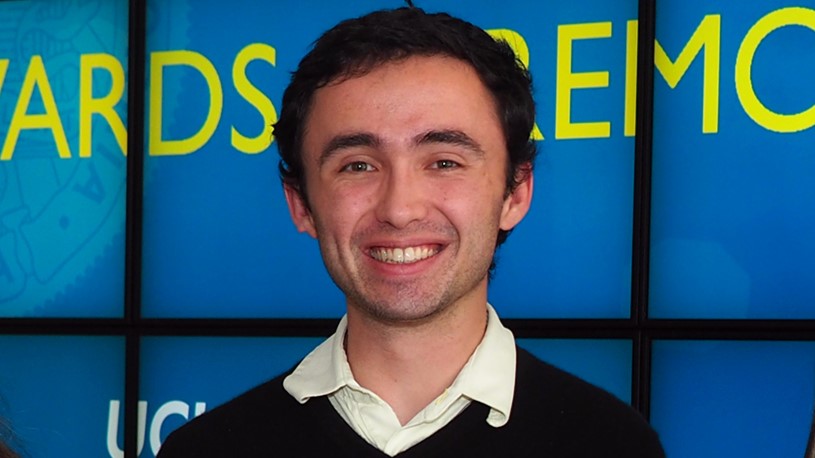The Babak Lab shared a post on LinkedIn:
“Scientific Wednesday:
Breaking Boundaries in Organic Chemistry: The 100-Year Challenge of Anti-Bredt Olefins
In a major advancement, Luca McDermott Catena and the team have challenged a century-old chemistry rule, successfully synthesizing anti-Bredt olefins (ABOs)—molecules once deemed too unstable to create! Why is this so important? Let’s dive in.
What Are ABOs and Why They Matter
For decades, Bredt’s rule dictated that certain strained ring structures couldn’t host double bonds due to instability. ABOs, with their twisted, distorted geometry, were considered impossible to synthesize. But this team achieved it, opening new possibilities for organic synthesis and medicinal chemistry.
How They Did It
The researchers developed a method to synthesize and trap anti-Bredt olefins (ABOs) using silyl (pseudo)halide precursors treated with fluoride sources, such as tetrabutylammonium fluoride (TBAF) or cesium fluoride (CsF), in the presence of a trapping agent.
This approach enabled the formation of ABOs in situ, which were then trapped in various cycloaddition reactions, creating complex products. Computational studies confirmed the distinct twisting and pyramidalization of the ABO’s carbon-carbon double bonds, highlighting their unique reactivity
What This Means for Chemistry
This research opens horizons for challenging other longstanding rules in organic chemistry, expanding our understanding of how structural strain and geometry influence molecular reactivity.
Let’s Discuss!
- Have you encountered a rule or ‘impossibility’ in your field that you think could be challenged?
- Where else could questioning established rules lead to discoveries?
- Do you believe computational modeling can help solve even more ‘impossible’ challenges?
Read more in the original article.”
Maria Babak, Head of The Babak Lab, shared this post, adding:
“Congratulations to Luca McDermott Catena and the team on this remarkable work!
Challenging Bredt’s rule and successfully synthesizing anti-Bredt olefins advances synthetic methodologies and inspires us to revisit other long-standing assumptions in organic chemistry.
This research truly highlights the power of precise structural control and computational insights in expanding our toolkit for complex molecule synthesis. Looking forward to seeing how these findings might influence future developments in strained molecule chemistry!”

More posts featuring The Babak Lab and Maria Babak.
Dr. Maria (Masha) Babak is the Head of The Babak Lab and an Assistant Professor at the City University of Hong Kong. In November 2020, she joined the City University of Hong Kong as an assistant professor. Dr. Babak received the Graeme Hanson-AsBIC Early Career Award in 2022.
Her research interests are at the intersection of chemistry, biology, and medicine, with a focus on the discovery and preclinical development of anticancer drugs for resistant and aggressive cancers with limited treatment options, such as malignant pleural mesothelioma and brain metastases. She received the Yvonne Award by OncoDaily in the “mentorship” category.


